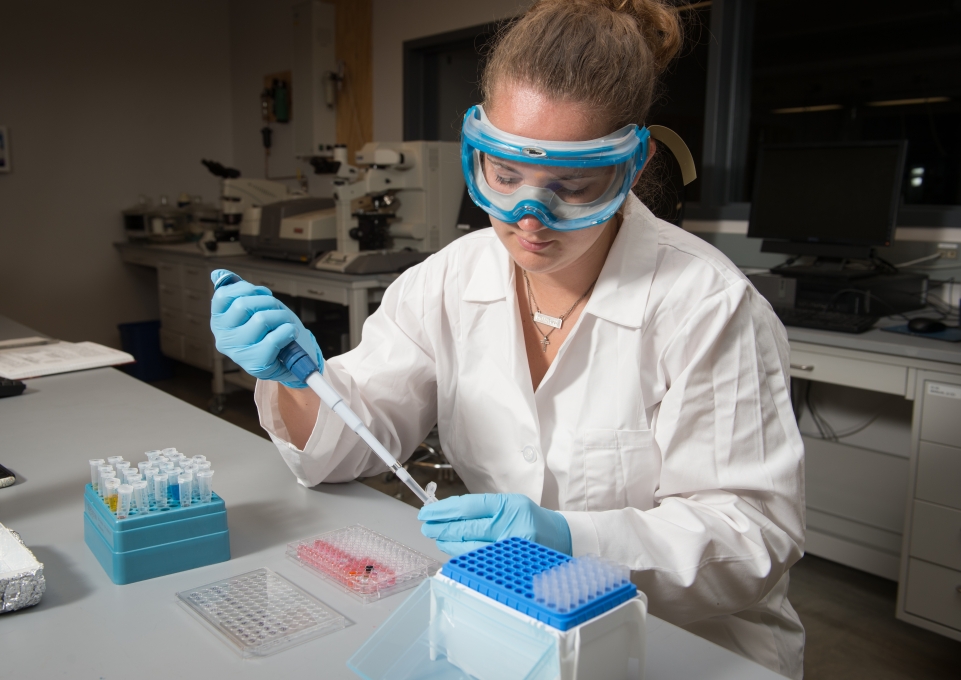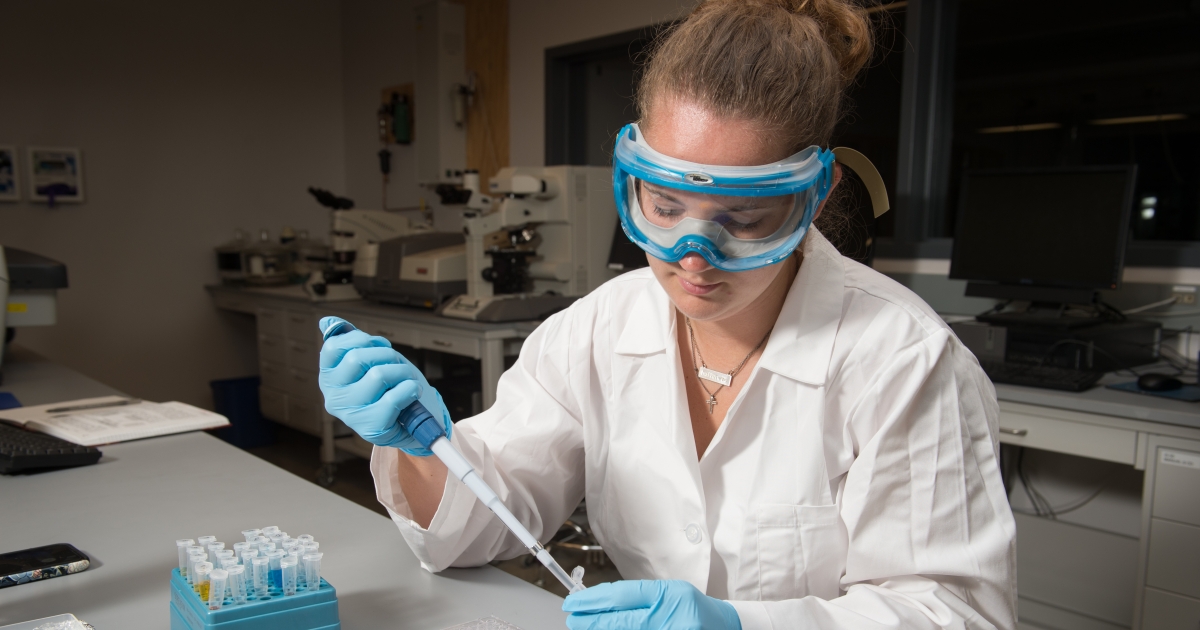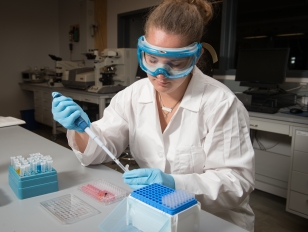
Buffalo State University’s bachelor of science in forensic chemistry was recently recognized by ForensicsColleges.com as one of the nation’s top forensic chemistry programs. Of the approximately 50 undergraduate forensic science programs in the United States, 33—including Buffalo State’s—are accredited by the Forensic Science Education Programs Accreditation Commission (FEPAC).
“FEPAC accreditation guarantees the quality of the program,” said Jinseok Heo, Buffalo State associate professor and chair of the Chemistry Department. “Every five years, a committee conducts an on-site visit; reviews the curriculum and job-placement data; meets with faculty members, students, and advisory committee members; and looks around the facilities. It requires significant investment and effort.”
Heo pointed out that while forensic science covers many areas—including digital security, anthropology, chemistry, and biology—only five of the nation’s 33 FEPAC-accredited programs focus specifically on forensic chemistry, making Buffalo State’s program distinct and highly competitive. Each year, 30 to 40 freshmen enter the chemistry program; about half are admitted as pre-forensic majors. To advance in the program, they must pass one year of college chemistry courses (CHE 111: Fundamentals of Chemistry I and CHE 112: Fundamentals of Chemistry II) and accompanying labs. Heo said about 50 percent of pre-majors successfully move to the next stage.
“Students may have impressions from television shows, like CSI,” Heo said, “but in reality, students need chemistry, calculus, and physics courses. Forensic chemists have to present scientific evidence to support the judicial system. They need rigorous scientific training.”
Forensic chemists analyze trace evidence found at crime scenes in order to identify unknown materials. They match samples to known substances and analyze drugs and controlled substances taken from the scene or from people in order to identify or quantify these materials. They also run tests on samples collected by investigators in a laboratory, document findings, and write reports that are used to support criminal investigations. They may also testify to their findings in court.
“Chemistry is typically a fundamental science, but forensic chemistry is more applied, aimed at solving real-world problems.”
Forensic chemistry is a natural fit for Buffalo State because the program emphasizes applied learning.
“Chemistry is typically a fundamental science,” Heo said, “but forensic chemistry is more applied, aimed at solving real-world problems.”
The Chemistry Department is housed in the Science and Mathematics Complex, which includes a 96,000-square-foot addition with state-of-the-art laboratories and classrooms where students get hands-on experience. In their senior year, students are required to complete field internships, many of them arranged through Buffalo State’s longstanding connections to local forensic labs and police departments, such as the Erie County Medical Examiner’s Office, Erie County Central Police Services, and the Niagara County Sheriff’s Office.
Recent graduates are employed in forensic labs across the state and nation, Heo said. Students completing the B.S. at Buffalo State can also become eligible for entry-level positions in DNA analysis, a quickly growing field, by adding just one additional course.
“We require students to take a genetics class from the Biology Department,” Heo said. “By adding a molecular biology course, they are eligible for entry-level DNA analyst positions, which gives them greater job flexibility. Forensic chemistry is a rigorous chemistry program. Even if students don’t go into the forensics field, they find jobs in the chemistry-related industry or go on to graduate school.”
Buffalo State offers both a bachelor of science and a master of science in forensic chemistry. The M.S. is primarily for students who have completed a chemistry or biology degree and want to gain additional experience in the field of forensics and seek jobs in forensic laboratories.
Heo said there are many benefits to careers in the forensic chemistry field, including job stability, good benefits, and the opportunity to settle in one place. Most importantly, he noted the value of the work itself.
“What matters is that students feel pride in the work,” he said. “Their high-quality work can help bring justice in important cases.”
Pictured: Carleigh Cimmerer, '20, '22, working in the chemistry lab at Buffalo State.



